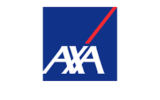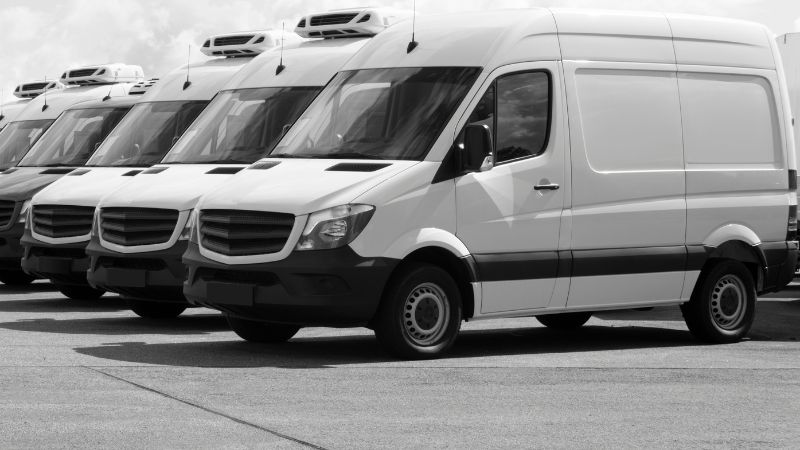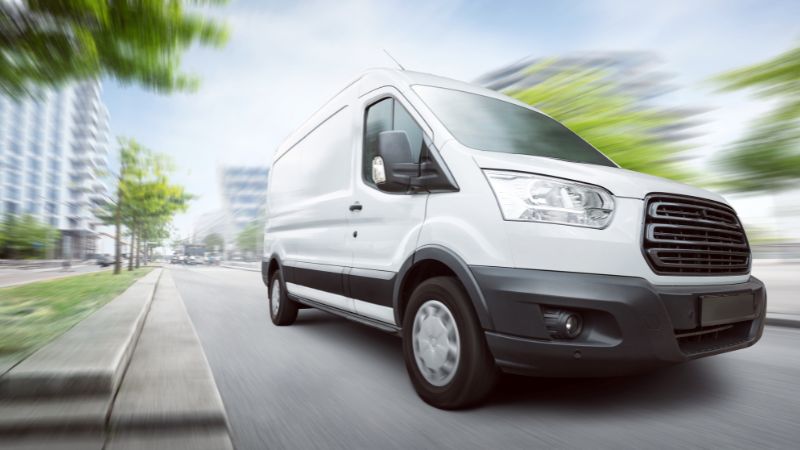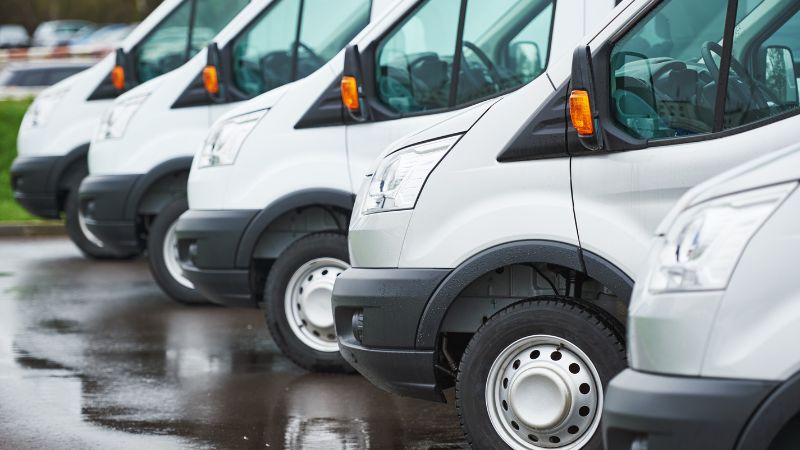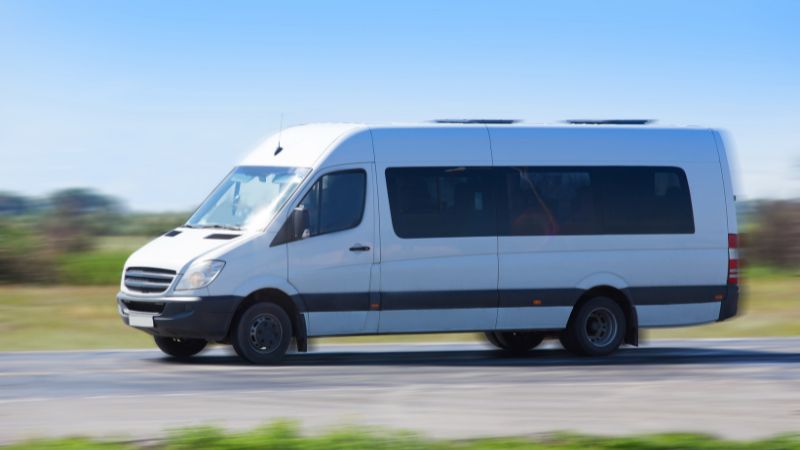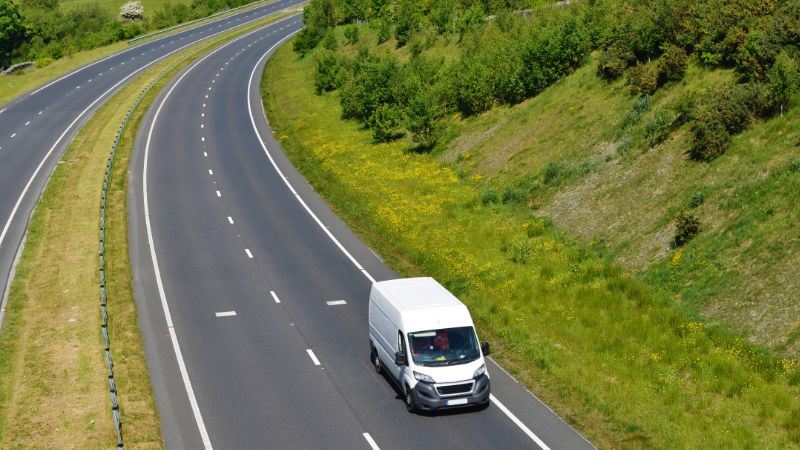Van Insurance For Non Commercial Vehicles
Compare Van Insurance For Non Commercial Vehicles With The UK Market
Van Insurance
Compare Top UK Van Insurance Quotes!
- FREE Search – Over 60 UK Van Insurers
- One short form to complete
- Tailor your requirements
- Compare multiple providers
- Find a policy to suit your needs!


Van Insurance For Non Commercial Vehicles
It is an increasingly popular trend in the UK for people to buy vans but never use them for commercial or business reasons.
While it is not difficult to get affordable van insurance for non commercial use, there are a number of important things to be aware of.
The first thing to keep in mind is that if you get van insurance quotes and take out a policy on the basis that you will not be using the vehicle for commercial purposes, you should always inform them if you intend to do anything that could be construed as commercial activity.
The difficulty here is that the line between commercial and non-commercial is blurry at best. You should therefore carefully consider the purpose of your van and how often it is used when comparing van insurance quotes from different providers.
If you are involved in an accident that involves the police, you will have to stipulate the contents of your van at the time of the accident. Police also now have the power to check your insurance on the roadside and see whether it is commercial or non-commercial van insurance.
If the police see that you are carrying a large amount of goods for yourself or someone else, they may consider this to be some form of commercial activity and you to be in breach of your insurance. Your provider can cancel your policy if this happens without you having a chance to appeal.
Many van insurance companies will offer discounts for low mileage, although the specifics of each quote for van insurance you get will be different. The main thing to remember is that you must keep your provider up to date with what activities you are using the van for; otherwise you could be found to be in breach of your non-commercial van insurance.
It is useful to enquire about what each company believes the distinction between commercial and non-commercial activities to be while obtaining van insurance quotes from them.
Short Summary
- Non-commercial van insurance is a type of van policy specifically designed for personal use vans, providing cover against risks and damages.
- Factors like vehicle type, driver age/history, location & usage can affect non-commercial van insurance rates.
- Comparing quotes from top providers and taking advantage of discounts & savings can help you find the most suitable cover at an affordable rate.
Understanding Non-Commercial Van Insurance
While vans are often associated with commercial activities, many people own vans for personal use—family transportation, leisure, or personal errands.
It’s essential to understand that non-commercial van insurance caters specifically to these personal use vehicles, providing tailored protection against potential risks and damages.
Non-commercial van insurance is designed to cover the costs of repairs and replacements for any damages to commercial vans.
Definition of Non-Commercial Van Insurance
Non-commercial van insurance is a type of personal van insurance policy designed specifically for vans used for personal purposes rather than business or commercial activities.
This cover caters to the unique requirements of personal vans and their owners, ensuring they receive adequate protection without paying for unnecessary commercial cover, such as a commercial van insurance policy or commercial vehicle insurance.
It’s essential to differentiate non-commercial van insurance from commercial van insurance, as the latter covers vans used for business-related activities.
Commercial insurance policies generally have higher liability limits to account for the increased risks associated with business operations.
Personal van insurance policies, on the other hand, typically have lower liability limits, making them more affordable for personal use.
When is Non-Commercial Van Insurance Necessary?
Non-commercial van insurance is necessary when a van is primarily used for personal activities, such as family transportation, leisure, or personal errands.
This type of cover provides protection against potential risks and damages that may occur during non-commercial usage, ensuring peace of mind for the van owner.
Various types of vans necessitate non-commercial van insurance, such as 15-passenger vans, sprinter vans, and cargo vans.
Protection from fire, theft, and vandalism damage, uninsured motorist cover, liability for third-party bodily injuries, and medical payments cover are all included in non-commercial van insurance policies, providing a comprehensive safety net for personal van owners.
Types of Non-Commercial Van Insurance Cover
Regarding non-commercial van insurance, there are three primary types of van insurance cover available: liability, collision, and comprehensive cover.
Each type offers a different level of protection, ensuring that you can tailor your policy to suit your specific needs and requirements.
No matter what type of cover you choose, you can rest assured that you will be protected.
Liability Cover
Liability cover is a crucial component of non-commercial van insurance, as it protects you against financial losses due to bodily injury or property damage caused by an accident where you’re found to be at fault.
This cover ensures that you’re not left financially vulnerable if you’re responsible for an accident that causes harm to others or their property.
Bodily injury liability insurance, a part of liability cover, provides protection for injuries sustained by another driver in an accident for which you are found to be at fault.
This cover can help cover medical expenses, lost wages, and other costs associated with the injured party’s recovery, shielding you from potential legal claims and financial hardships.
Collision Cover
Collision cover is another essential aspect of non-commercial van insurance, as it covers the cost of repairing or replacing your van in case of an accident with another vehicle or object.
This cover ensures that you’re not left stranded without transportation if your van sustains significant damage in a collision.
Apart from covering the cost of repairing dented bumpers, broken headlights or taillights, and scratched or cracked chassis and panels, collision cover also takes care of tire damage resulting from a collision with another car or stationary object on the road.
However, it’s essential to note that collision cover does not provide protection for damage caused by contact with a person or animal.
Comprehensive Cover
While liability and collision cover focus on protection during accidents, comprehensive cover offers a different layer of protection, covering damages caused by events other than collisions.
These events include theft, vandalism, or natural disasters, such as floods, storms, or fires.
With comprehensive cover in place, you can rest easy knowing that your van is protected from a wide range of potential risks and damages.
Some examples of what comprehensive cover can help with include:
- Theft of your van
- Vandalism to your van
- Damage caused by natural disasters, such as storms or floods
- Fire damage to your van
If any of these unfortunate events occur, comprehensive cover will help cover the cost of repairing or replacing your vehicle, ensuring that you’re not left out of pocket.
Factors Affecting Non-Commercial Van Insurance Rates
Several factors can influence the cost of non-commercial van insurance, such as the type of vehicle, the driver’s age and driving history, and the van’s location and usage.
Being aware of these factors can help you better understand your insurance rates and find ways to reduce your premiums.
Vehicle Type and Features
The make and model of your van, its age, and any additional features or modifications can all affect your non-commercial van insurance rates.
For example, vans with advanced safety features or anti-theft devices may be eligible for lower premiums due to their reduced risk.
On the other hand, older vans or those with modifications may be subject to higher premiums due to their increased risk of accidents or theft.
Driver’s Age and Driving History
Your age and driving history play a significant role in determining your non-commercial van insurance rates.
Younger drivers, for instance, are often charged higher premiums due to their lack of experience and higher accident risk.
Similarly, drivers with poor driving records, such as speeding tickets or accidents, may face higher premiums due to their increased risk on the road.
Insurance companies use statistical data on accident rates and claims histories to calculate premiums, so maintaining a clean driving record can help you secure lower rates.
Location and Usage
The primary location of your van and how you intend to use it can also impact your non-commercial van insurance rates.
For instance, if you primarily operate your van in an area with a high rate of accidents or theft, your insurance rates may be higher.
Additionally, if your van is used for business purposes, your rates may be higher than those used for personal use.
Tips for Finding Affordable Non-Commercial Van Insurance
With so many factors influencing non-commercial van insurance rates, finding the most affordable policy may seem daunting.
However, by comparing quotes, taking advantage of discounts and savings, and customising your cover, you can secure the best policy for your needs without breaking the bank.
Comparing quotes is the best way to find the most affordable policy. You can compare quotes.
Comparing Quotes
One of the most effective ways to find affordable non-commercial van insurance is to compare quotes from multiple insurance providers.
Remember that the cheapest option may not always be the best choice; it’s essential to weigh the cost against the cover provided to ensure you’re receiving the best value for your money.
You can use our comparison table at the top of this page to compare quotes across the market.
Discounts and Savings
Many insurance companies offer discounts and savings for non-commercial van insurance, such as safe driver discounts, multi-vehicle discounts, and bundling discounts.
These discounts can significantly reduce your premiums, making your cover more affordable.
To take advantage of these discounts, maintain a clean driving record, combine multiple insurance policies with the same provider, and inquire about any available savings when obtaining quotes.
Customising Your Cover
Customising your non-commercial van insurance cover can help you control your insurance costs.
By selecting appropriate cover limits and deductibles, you can ensure that you’re not paying for unnecessary cover.
For example, if your van is older and has a lower market value, you may consider opting for a higher deductible to reduce your premiums.
On the other hand, if you have a newer van with advanced safety features, you may be eligible for lower premiums due to the reduced risk.
Frequently Asked Questions
What type of insurance do you need on a cargo van?
You need liability insurance for your cargo van to protect your business from any injuries or damage caused by you or your employees if you’re at fault in an accident.
This type of insurance can help cover legal fees and other costs associated with an accident. It can also help protect your business from financial losses due to a lawsuit.
What is the difference between non-commercial and commercial van insurance?
Non-commercial van insurance is designed for personal use, while commercial van insurance is designed for business or commercial activities.




